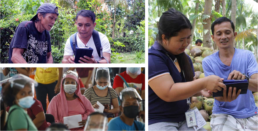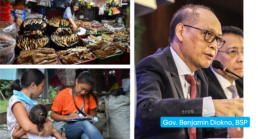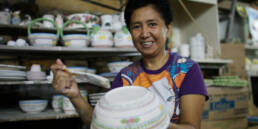Micro, small and medium enterprises (MSMEs) are considered the backbone of our country’s economy. They make up 99.5% of the business enterprises in the Philippines and account for 62.4% of total employment. But with the nationwide lockdowns implemented during the pandemic, they became one of the most vulnerable sectors in the country.
Unfortunately, MSMEs struggle to apply for loans. Financial institutions consider them as high risk due to their lack of credit history and accepted collateral – two major considerations for approving loans usually. The lack of access to credit makes it difficult for MSMEs to sustain their business, especially now with the pandemic.
To address this, Japan International Cooperation Agency (JICA), the world’s largest bilateral agency, and Bangko Sentral ng Pilipinas (BSP) collaborated for a financing program that will develop a statistical reference tool to promote risk-based lending. The establishment of a Credit Risk Database in our country is an important step in creating a long term support and sustainable financing ecosystem for MSMEs.
What is the Credit Risk Database (CRD) Project?
Credit Risk Database (CRD) is a financing program for MSMEs that provides them with a statistical credit scoring which can be used by lenders as a source of information to assess the borrower’s capacity to pay. It will help address the challenges of MSMEs such as their access to finance due to lack of collateral, inability to provide credit history, and banks’ lack of information in assessing credit.

What are the goals of the Credit Risk Database Project?
Launched in December 2020, 17 banks participated in the 3-year BSP program which will help create a scoring model.
Implementing CRD will enable banks to use a robust credit scoring model to validate their internal scoring models. The credit program will also help banks that lack a credit scoring model and enhance the credit risk management system in the Philippines. More institutions can extend more loans to small businesses and strengthen the efforts of the government to support MSMEs in the face of the pandemic.
Growing the MSME Sector with Easier Access to Credit

As BSP Governor Benjamin Diokno stated in his speech, the financial program will increase MSMEs’ access to credit, leading to their improved productivity to generate more jobs and source of income to more Filipinos. By building a credit risk database in the country, we can support the economic recovery of MSMEs and provide them long-term support to ensure their growth.
You can learn more about government programs that support MSMEs in the Philippines here.
Contributed by: Luisa Mae Gonzales
Related Posts
August 16, 2022
Manila’s 35 Fastest Growing FinTech Startups
PearlPay was selected by Fintech Energy, which monitors over 200,000 startups, as one of the…
February 4, 2022
PH COVID-19 Recovery Plan: Financial Institution Strategic Transfer (FIST) Act
Read how the Financial Institution Strategic Transfer Act or FIST Act can help financial…
October 26, 2021
Serbisyo sa Barangay: Livelihood Program for MSMEs
Serbisyo sa Barangay is a livelihood program that will equip MSMEs in barangays with the necessary…



